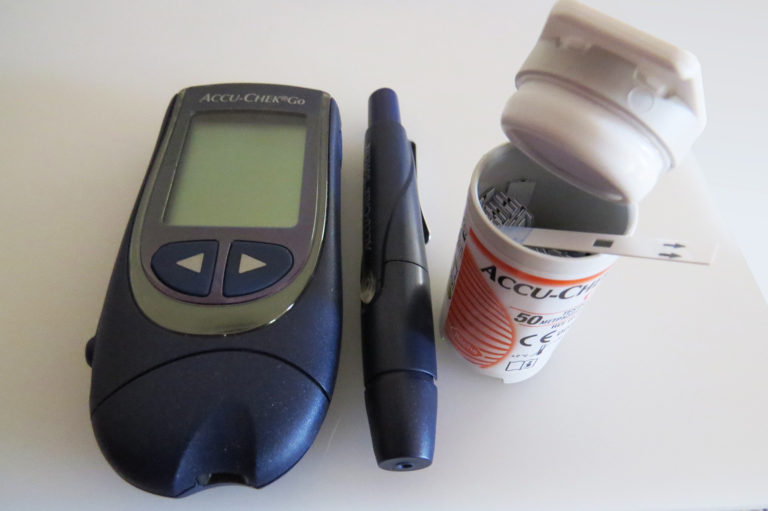
Diabetes is a chronic condition in which the body does not properly process glucose, or sugar, for our bodies to use for energy. The pancreas makes a hormone called insulin to help glucose get into the cells of our bodies. When you have diabetes, your body either doesn’t make enough insulin or can’t use its own insulin as well as it should. This causes sugars to build up in your blood. That’s why many people refer to diabetes as “sugar.”
Broadly, there are 2 types of diabetes:
Type 1 Diabetes
The more severe form of diabetes is Type 1, or insulin-dependent diabetes. It’s sometimes called “juvenile” diabetes, because it usually develops in children and teenagers.
With Type 1 diabetes, the body’s immune system attacks part of its own pancreas and attacks cells called ‘islets’ that sense glucose in the blood and produce the necessary amount of insulin to normalize blood sugars.
Insulin allows the glucose to enter the cells; without insulin, sugar builds up in blood. High levels of sugar in the blood can cause changes that lead to atherosclerosis, which is a hardening of blood vessels.
High levels of blood sugar can cause changes that lead to a hardening of the blood vessels, what doctors call atherosclerosis. Atherosclerosis can lead to serious problems, including heart attack, stroke, or even death.
Type 2 Diabetes
The most common form of diabetes is called Type 2, or non-insulin dependent diabetes or “adult onset” diabetes, since it typically develops after age 35. However, a growing number of younger people are now developing Type 2 diabetes.
People with Type 2 diabetes are able to produce some of their own insulin but often, it’s not enough or the insulin does not work properly (called insulin resistance), enabling sugar to build up in the bloodstream. Often, Type 2 is tied to people who are overweight, with a sedentary lifestyle.
Importance of Diabetes
Compared with people who do not have diabetes, diabetics are 2 to 3 times more likely to have a heart attack or a stroke. People with diabetes also have heart attacks at a younger age, and these heart attacks are more severe and more deadly. Plus, people with diabetes are much more likely to get kidney disease, vision and eye problems including blindness and nerve damage as well as loss of toes or fingers or limbs due to circulation and nerve problems.
Managing diabetes:
Apart from reducing sugars, it is important to manage high blood pressure and high cholesterol, as a combination of these problems can often cause more serious problems than those caused by high blood sugar itself.
- A1C – A1C is a blood test that shows what your average blood sugar level has been during the last few months. Normal level is <5.6. In patients with diabetes, the goal is to maintain this number between 6-7.
- Blood pressure – Controlling blood pressure is just as important as controlling your blood sugar. High blood pressure puts you at risk for heart attack, stroke, and kidney disease. Diabetics should maintain a blood pressure less than 130/80.
- Cholesterol – In diabetics, high cholesterol is another factor that increases your risk of heart attacks, strokes, and other serious problems. Bad or LDL cholesterol level must be below 100 in those with diabetes and medications are often required to achieve that goal.
How do I keep my diabetes under control?
- Medicines – Most people with diabetes take medicine every day to control their blood sugar. They might also need to check their blood sugar level every day.
- Lifestyle changes – Choices you make every day about the foods you eat and the way you live can have a big impact on your overall health.
- Make healthy food choices – Eat lots of fruits, vegetables, whole grains, and low-fat dairy products. Limit the amount of meat and fried or fatty foods that you eat.
- Be active – Walk, garden, or do something active for 30 minutes or more on most days of the week.
- Stop smoking – Smoking increases the chance that you will have a heart attack or stroke, or develop cancer.
- Lose weight – Being overweight increases the risk of many health problems.
- Avoid alcohol – Alcohol can increase blood sugar and blood pressure.
Fortunately, many of the lifestyle changes above can help control blood sugar, blood pressure, and cholesterol levels.
To learn more about how plaque buildup occurs and about other heart- and circulation-related problems, download CardioVisual, a free mobile heart health app with short videos that clearly explains complex heart problems.